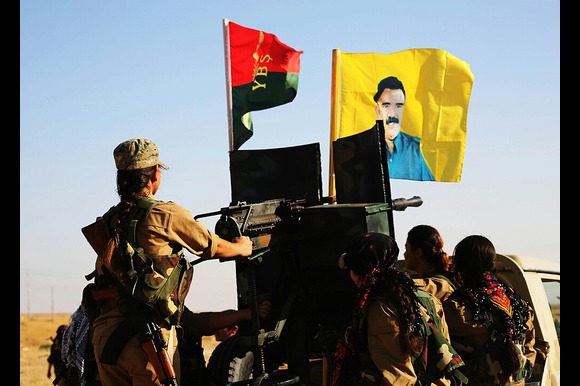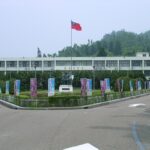The PKK, a Kurdish organization that is considered outlawed, has announced a ceasefire with Turkey following a call from its imprisoned leader, Abdullah Ocalan, urging the movement to disarm and disband. In a statement released on Saturday, the PKK expressed its hope that Turkey would facilitate Ocalan’s release from solitary confinement, where he has been held since 1999, to guide a disarmament process. This development follows Ocalan’s recent appeal aimed at concluding a four-decade-long armed conflict in southeastern Turkey, which has resulted in the deaths of tens of thousands.
Ocalan’s announcement comes in the wake of an initiative launched by Devlet Bahceli, the leader of the ultra-nationalist MHP party and a supporter of the Turkish government, to resolve the ongoing conflict. Ocalan, affectionately known as Apo among Kurdish nationalists, met with members of a pro-Kurdish party this week on Imrali Island, located in the Sea of Marmara, where he is incarcerated.
The PKK’s executive committee stated, “To facilitate the realization of leader Apo’s call for peace and a democratic society, we are declaring a ceasefire effective immediately.” They further emphasized that “none of our forces will engage in armed actions unless provoked.”
The PKK, which stands for the Kurdistan Workers’ Party, insisted that Ocalan’s prison conditions should be improved, asserting that he “must be allowed to live and work in physical freedom and maintain unrestricted relationships with anyone he chooses, including his friends.” The group has been involved in an insurgency since 1984, seeking to establish a homeland for Kurds, who represent approximately 20% of Turkey’s population of 85 million. It is designated as a terrorist organization by Turkey, the EU, the UK, and the US.
Ocalan, in a letter presented by Dem party members Ahmet Turk and Pervin Buldan in both Kurdish and Turkish, called for disarmament among PKK members. He urged that “all groups must lay down their arms and the PKK must disband,” explaining that his movement emerged primarily due to the closure of democratic political avenues.
Ocalan noted that Bahceli, with support from President Recep Tayyip Erdogan and other political factions, had fostered a conducive environment for the PKK to cease its armed activities. This announcement was largely welcomed by Kurdish leaders, with local reports indicating that thousands gathered in cities like Diyarbakir and Van to view the statement on large screens in the predominantly Kurdish southeastern region. Nevertheless, significant uncertainties persist among both Kurdish and Turkish populations regarding the potential next steps, and skepticism remains about the likelihood of change.
Recently, senior PKK commander Duran Kalkan asserted that the ruling AKP was not seeking a resolution but rather aimed to “take over, destroy, and annihilate.” Additionally, Turkish-backed forces in northeastern Syria have escalated their operations against Kurdish groups, recently urging Syria’s new leadership to dismantle the Kurdish-led Syrian Democratic Forces. In recent years, pro-Kurdish politicians have faced a surge of arrests and imprisonment.
Since the onset of the PKK’s insurgency, approximately 40,000 lives have been lost. A notable increase in violence occurred in southeastern Turkey between 2015 and 2017, following the collapse of a two-and-a-half-year ceasefire. More recently, in October, the PKK claimed responsibility for an attack on the Turkish Aerospace Industries (TAI) headquarters near Ankara, resulting in five fatalities.






